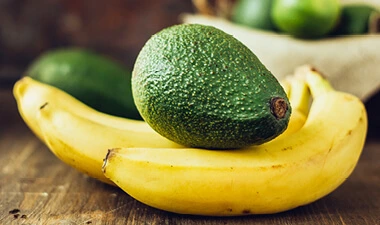Maintaining kidney health is crucial for overall well-being, as these vital organs play a significant role in filtering waste products and regulating fluid balance in our bodies.
While a balanced diet is essential for optimal kidney function, there are certain foods that, when consumed in excess, may potentially lead to kidney damage.
In this article, we will explore some commonly consumed foods that should be avoided or consumed in moderation to promote kidney health according to Healthline.
Avocados
Avocados have gained immense popularity due to their nutritional benefits and healthy fats.
However, individuals with kidney issues should be cautious when consuming avocados excessively.
Avocados are high in potassium, which can be problematic for individuals with compromised kidney function.
While moderate avocado consumption can be part of a healthy diet, it is advisable to consult with a healthcare professional regarding appropriate portion sizes and frequency.
Canned Foods
Canned foods often provide convenience and extended shelf life. However, they can also pose risks to kidney health.
Many canned foods, such as soups, vegetables, and processed meats, are loaded with sodium and preservatives. High sodium intake can increase blood pressure, leading to strain on the kidneys.
Opting for fresh or frozen alternatives, and carefully reading labels to select low-sodium options, can help minimize the potential impact on kidney health.
Whole Wheat Bread
Whole wheat bread is generally considered a healthier alternative to refined white bread due to its higher fiber content and lower glycemic index.
However, individuals with kidney problems, particularly those on a low-phosphorus diet, should be mindful of their whole wheat bread consumption.
Whole wheat products often contain higher levels of phosphorus, which can be problematic for individuals with impaired kidney function.
Consulting a healthcare professional or a registered dietitian can provide guidance on suitable bread choices for those with kidney concerns.
Brown Rice
Brown rice is a nutritious grain known for its fiber content and essential nutrients.
However, it is worth noting that brown rice contains higher levels of phosphorus compared to white rice.
Similar to whole wheat bread, individuals with kidney issues should be mindful of their phosphorus intake and consider portion sizes and frequency of brown rice consumption.
Exploring alternative grains lower in phosphorus, such as quinoa or millet, can be a suitable option for those seeking variety in their diet while managing kidney health.
Bananas
Bananas are a popular fruit due to their rich potassium content, which plays a crucial role in maintaining healthy nerve and muscle function.
However, excessive potassium intake can be problematic for individuals with compromised kidney function, as the kidneys may struggle to eliminate excess potassium from the body.
While bananas can still be enjoyed as part of a balanced diet, it is advisable to consume them in moderation and consider other fruits with lower potassium content.


